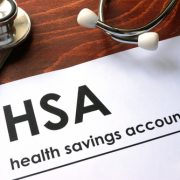Self-Directed HSAs (Health Savings Accounts)
Eligible individuals are permitted to establish and maintain Health Savings Accounts (HSA)s, for the purpose of paying and/or reimbursing themselves for eligible medical expenses. Like IRAs, Self-Directed HSAs must be established and maintained with a qualified custodian/trustee, such as a brokerage firm or bank.
Self-Directed HSAs can be established by individuals or by employers; and contributions are deductible by the contributing party.
Eligibility
An individual must meet certain requirements, in order to be eligible for a Self-Directed HSA. These are:
- The individual must be covered under a high deductible health plan (HDHP).
- The individual must have no other health coverage, unless an exception applies.
- The individual must not be enrolled under Medicare.
- The individual must not be claimed as a dependent on another persons’ tax return, for the year in which the Self-Directed HSA contribution is made.
Individuals should consult with their tax professionals, to determine eligibility for HSAs.
Self-Directed HSA Contributions
Self-Directed HSA contributions must be made by the owner’s tax filing due date. Extensions do not apply.
An individual may claim a tax deduction for Self-Directed HSA contributions made to his/her HSA. If the contribution is made by the individual’s employer, the amounts are deductible by the employer but are excluded from the individual’s income.
Self-Directed HSA contributions grow on a tax-deferred basis, and are tax-free when distributed, if the distributions are used to pay for qualified expenses.
The contribution amount that an individual is eligible to make, is dependent on his/her:
- Type of HDHP coverage,
- Age,
- Date of eligibility, and
- If the individual ceases to be an eligible individual, the date on which such eligibility ceases.
The contribution limit for 2018 is $3,450 for those with self-only HDHP coverage, and $6,900 for those with family HDHP coverage. An additional catch-up contribution of $1,000 is permitted for individuals who are at least age 55 by the end of the year.
There are other factors that could affect the contribution eligibility, such as whether one is eligible for the entire year. Individuals must consult with their tax professional to determine whether they are eligible to contribute the full amounts stated above.
Contributions in excess of the statutory limit could be subject to excise tax, if not corrected properly and timely.
Distributions
During the Self-Directed HSA owner’s lifetime, distributions are optional.
The tax-treatment of distributions depend on whether they are ‘qualified’ or ‘nonqualified’.
Distributions from Self-Directed HSAs are tax-free if they are used to cover qualified medical expenses, which are expenses that would generally qualify as deductible medical and dental expenses on the individual’s tax return. Individuals should consult with their tax professionals to determine whether particular expenses meet this requirement.
Eligible expenses include those incurred by the Self-Directed HSA owner, as well as:
- His/her spouse.
- All dependents he/she claim on his/her tax return.
- Any person he/she could have claimed as a dependent on his/her return except that:
- The person filed a joint return,
- The person had gross income of $4,050 or more, or
- He/she and spouse if filing jointly, could be claimed as a dependent on someone else’s return for the year.
Generally, expenses incurred before the Self-Directed HSA was established are not considered eligible expenses.
Distributions that meet the eligibility expenses requirements are considered qualified distributions. Nonqualified distributions are treated as ordinary income to the Self-Directed HSA owner, and are subject to a 20% penalty, unless an exception applies.
Professional Help Is a Must
The information provided herein is a high-level overview of the rules that apply to Self-Directed HSAs, and failure to operate an HSA within the confines of the application regulations and operational requirements could result in the HSA owner being subject to excise taxes, penalties and ineligibility to deduct contributions.
Individuals should consult with a tax professional who is knowledgeable in the area of Self-Directed HSAs, to ensure that all the applicable rules and regulations are followed.
Interested in learning more about Self-Directed IRAs? Contact American IRA, LLC at 866-7500-IRA (472) for a free consultation. Download our free guides or visit us online at www.AmericanIRA.com.


